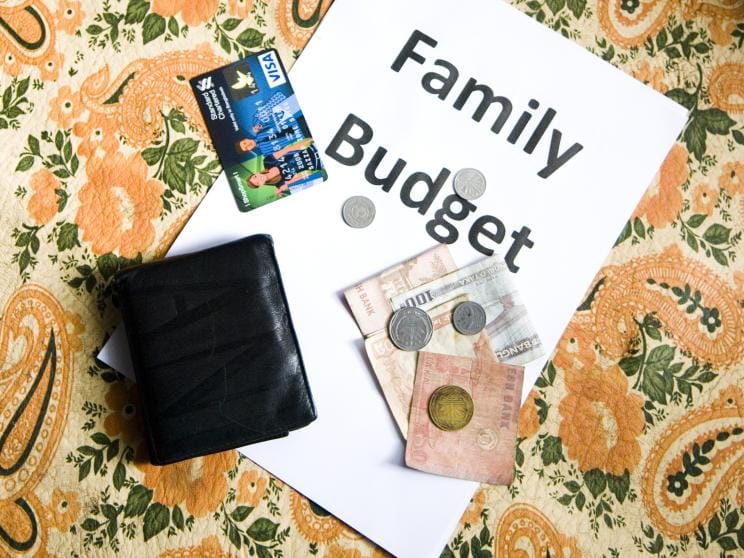Why teaching kids about money is more important than ever

Growing up in the '80s and '90s, we never discussed money at home. My parents never discussed it with us, so I never knew how much a kilogram of rice or a dozen eggs cost. I also did not know how much we paid for rent or utility bills. I did not know how much our family earned and how much we spent each month. Of course, we do not want to sit with our children with a spreadsheet and give them a headache, but it is important to discuss money management with children as they get older. This knowledge will help them make more informed financial decisions as adults.
Discussing money is often considered taboo, not only in Bangladesh but also in many other parts of the world. However, financial literacy is crucial to our financial well-being, which is closely linked to our physical and psychological well-being. I have seen people, friends, and family make poor financial decisions and sink into debt. I have seen how credit cards resulted in excessive spending and financial ruin. And I blame a lot of it on our poor financial literacy.

Financial literacy begins at home
Our teen daughter has been accompanying us to grocery shopping since she was just a few months old. It is also true that we did not have the option of leaving her at home with someone, so we took her with us wherever we went. This decision, however, proved beneficial for her; she learned new words, letters, and numbers during her grocery-shopping trips. As she grew older, she became familiar with the prices of the food items we bought. She also learned to compare prices between brands and varieties, and read nutrition labels to make healthy eating choices. Beyond food, she also gained an understanding of how much her clothes, shoes, and other belongings cost.
By the age of 10, she knew that earning money requires hard work and that it needs to be spent wisely and effectively.
At school
My daughter has a bank account, where she saves the cash gifts she receives from her parents and extended family on birthdays and other special occasions. When she was in fourth grade, her school encouraged her to open her own bank account. A representative from a local credit union went to her class and lectured on the importance of saving money from a young age. Here in the US, a minor can open a bank account with as little as $5. These accounts do not charge a monthly service fee or require a minimum balance.
As many as 30 states across America now require students to take a financial literacy course for high school graduation. The curriculum covers topics such as budgeting, personal banking, savings, taxes, credit, investing, consumer protection, and other financial concepts. Students can apply the knowledge gained through this curriculum for the rest of their lives!
Money is a sensitive and taboo subject to discuss in our society. However, this is not the way it should be. It is true that those of us who did not learn about money management at home or school, or those of us who did not study business at college or university, often find it challenging to understand various financial concepts and manage money effectively. Without knowledge of budgeting, savings, taxes, credit, interest, etc., we often make financial mistakes when we start earning money as working adults. The result? We spend more than we should, we fail to save (even for emergencies), or we fall into debt.

Scams and credit cards
In today's age of credit cards, financial literacy is more than just necessary. Many credit cardholders are oblivious to the fact that the money on a credit card actually belongs to the bank, not them. If they cannot pay it back on time, they will incur high interest charges!
We are also living in a time when financial scams are rampant. Without adequate financial literacy, we are more likely to fall victim to these scams.
Therefore, take some time to educate yourself about money management. There are plenty of free resources available on the internet. There are even free online classes on financial literacy. One highly informative and completely free Financial Literacy course is offered by Khan Academy and others. If you have friends or family who are finance professionals, you can also seek their expert advice regarding financial decisions and request them to educate you on financial concepts.
At the same time, we should start discussions around money at home with our children once they are 9 or 10 years old, so that our children have an understanding of how money is earned and spent in the family. This knowledge will help our children set realistic goals for themselves and have realistic expectations from us, the parents.
The earlier we understand the importance of financial literacy, the better for society. Like how it is being done here in America, schools in Bangladesh can take the initiative to educate their students about finances from a young age. Knowledge about savings, budgeting, credit, interest, taxes, and other financial concepts at a young age will help build a generation of young individuals who are financially literate.
Only a person who has experienced the toll of a financial crisis knows the burden it can place on themselves and their loved ones. Adequate financial literacy can substantially decrease the likelihood of experiencing a personal financial crisis.




 For all latest news, follow The Daily Star's Google News channel.
For all latest news, follow The Daily Star's Google News channel.
Comments